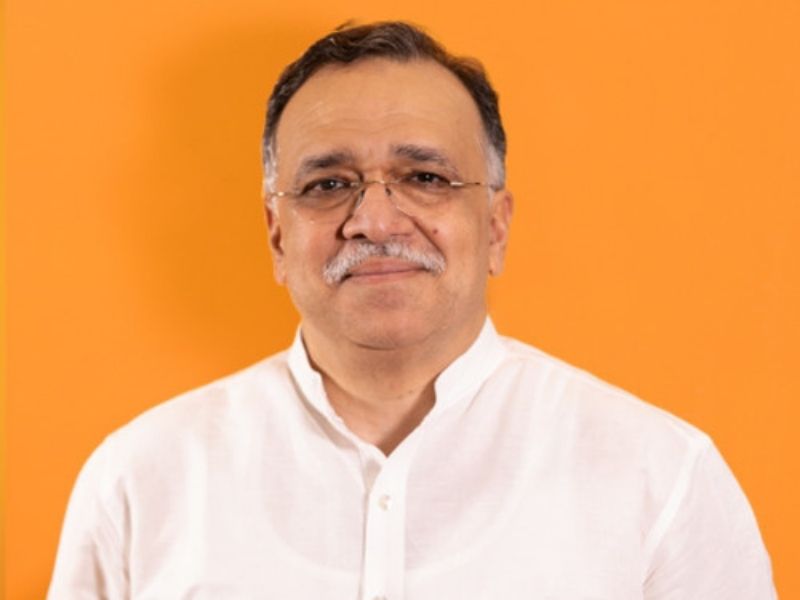– Dipta Joshi
Harappa Learning Fellowship promotes multi-institutional learning
Harappa Education (estd.2018) is an online learning institution founded by Pramath Raj Sinha and Shreyasi Singh. Offering career programs on foundation skills to enhance employability, the institution’s pedagogical approach is rooted in academic research, expert insights, and behavioral science. Speaking to Dipta Joshi, founder Pramath Sinha extols the advantages of online education in promoting equal access to quality education.
What is the philosophy behind launching Harappa Education?
This is a culmination of my own personal journey, my professional experience, and my education. For a while now, I have believed that a lot of what we are teaching our children is not what actually makes one successful in life. I have come to the conclusion that there are certain foundational skills or habits that contribute to success. Since these are ways in which we think and act unconsciously, I call them habits and believe people should be taught the importance of these habits early enough to be more successful. At Harappa Education, we are trying to teach things that people do not really teach. So, we are calling these skills “Harappa Habits”. We have broken down five major habits into 25 specific skills that people can learn.
What are the five habits taught by Harappa Education?
We have approached learning from a workplace perspective, so the first big habit is how you ‘Solve’ problems and challenging situations. To be able to solve something, you need to have a certain level of thinking which makes ‘Think’ another habit. Since you cannot do all the work by yourself entirely. ‘Collaboration’ is another habit. One also needs to ‘Communicate’ well, which is the fourth habit. What also matters is that you are self-motivated and know how to ‘Lead,’ both yourself and others, which is the fifth habit. For each of these five habits, we’ve created five sets of skills. So, there are 25 courses and each of them is 4 to 6 hours long that you can take online. Students however can take up any course they want that helps them strengthen their foundational skills.
How much impact did the COVID-19 disruption have on the response since you launched last December (2019)?
We launched Harappa in November 2019 with only B2B offerings for corporates and campuses. In March 2020, the world went into lockdown. We realized our course ‘Embracing Change’ was pertinent and made it available for free for all learners. More than a hundred thousand people have registered for this course since then. What we also realized was that this is a time of transformation of workplaces and work cultures. We unlocked our courses for B2C audiences in April 2020. Since then, we’ve seen learners take up courses to advance their skills to stand out in these trying times. Our course ‘Speaking Effectively’ is one of our most popular courses. We’ve seen the course concepts being relevant in times of online and remote work. In fact, a lot of school teachers have taken up this course to ensure online teaching is as impactful as offline teaching!
Are other online educational platforms offering similar courses?
While other platforms offer a large number of courses on different topics, we focus on a niche sector. You might find a course on public speaking somewhere, or you might find a course on critical thinking or a course on speaking effectively on other platforms, but they are dispersed. I think where we are distinctive is in identifying an important part of learning and focusing on that and making sure that we do a good job while doing it. It stems from my conviction that this learning is really fundamental, and we need to focus on these skills.
Why launch the ‘Harappa Learning Fellowship’ at this point?
We see ourselves as an educational institution. We don’t see ourselves as a platform that is a marketplace. They are more in the business of e-commerce, selling content created by other people. I see us as an institution, except that the institution is being built online rather than in the physical world. Therefore, we want to do all the things that an institution does, which is offer different types of programs, attract different types of people. One idea was to offer an amalgamated package of courses offered by us as well as others like Ashoka University. Hence, we introduced a unique, invitation-only scholarship, the Harappa Learning Fellows, to offer the most exciting online courses and other opportunities to high-potential professionals and leaders. We have done that for 10 or 15 people till now.
The idea to perpetuate was that the world is moving to an era where people will create their own curriculum. When two people from different geographies are able to study the same course that is truly the democratization of education. Online education should not just increase access but give access to quality education too. If online education only replicated the deprived quality that we are currently subjecting our students to, around the country, then that would be a missed opportunity.
Read: Most parents in Karnataka, Delhi want longer online classes: Survey
Also read: MHRD issues guidelines for online classes by schools
Also read: School fees & online classes confusion: National round-up
